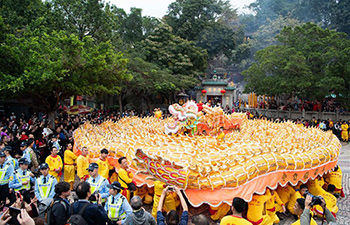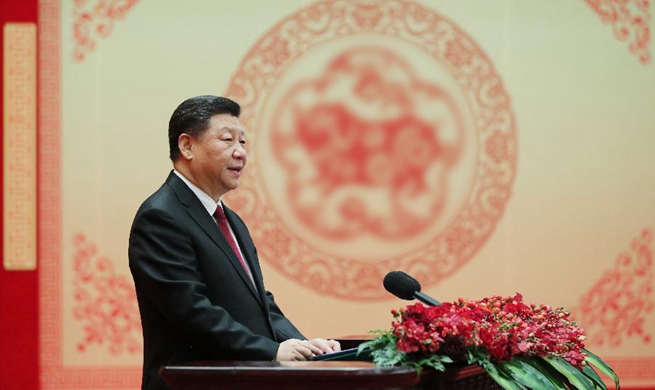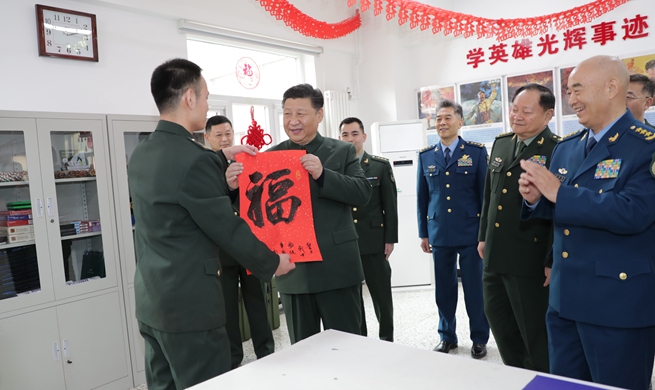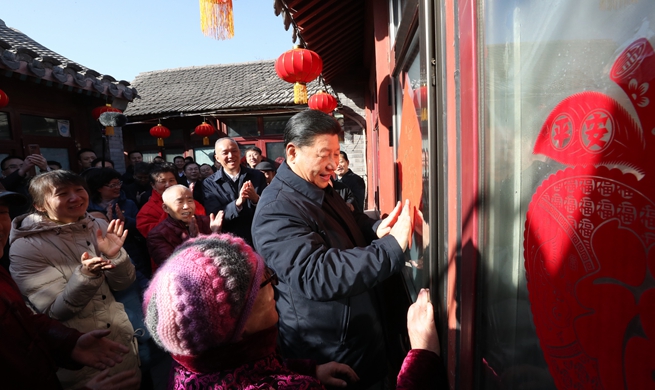SANAA, Feb. 5 (Xinhua) -- The newly-appointed head of the United Nations mission to monitor a truce agreement arrived on Tuesday in Yemen's rebel-held capital Sanaa.
Michael Anker Lollesgaard of Denmark arrived along with a four-member team. He was set to travel from Sanaa to the country's Red Sea port city of Hodeidah to assume his duty.
Lollesgaard was appointed last week by the UN Secretary-General Antonio Guterres as the chair of the Redeployment Coordination Committee (RCC) and head of the UN mission in support of the Hodeidah agreement.
Lollesgaard succeeded retired Major General Patrick Cammaert of the Netherlands, who led the advance team in Hodeidah.
Cammaert is currently on a UN-hired ship off Hodeidah, holding joint meetings between the Yemeni rival parties to end a month-long stalemate over implementation of troop's withdrawal from the port city.
Cammaert's convoy came under fire two weeks ago while he was shuttling between the rival forces in frontlines in Hodeidah.
The conflict in Yemen started in 2014 when the Houthi rebels overtook Sanaa and forced the government into exile in Saudi Arabia. Since 2015, a Saudi-led coalition, backing the government, has been fighting the Houthis.
The security situation was further exacerbated after the coalition launched in June 2018 an operation to retake rebel-held Hodeidah, a strategic port city that had been handling some 70 percent of Yemen's imports of food.
The fighting has spawned the world's worst humanitarian crisis and brought the poorest Arab country to the brink of famine.
Under the UN auspices, the warring parties reached a deal in Sweden in December 2018, which included a cease-fire in Hodeidah and the formation of the RCC to monitor the withdrawal of troops by both the government and the Houthis in the area.
The cease-fire deal went into force on Dec. 18, 2018, but the withdrawal of the rival forces has yet to be fulfilled because of different interpretations of the Stockholm Agreement over who would control key points of Hodeidah during the partial cease-fire, according to the UN statements.
Saudi Arabia and the United Arab Emirates have been leading an Arab military coalition that intervened in Yemen in 2015 to support the internationally-recognized government of President Abd-Rabbu Mansour Hadi after the Houthi rebels forced him into exile and seized much of the country's north.

















